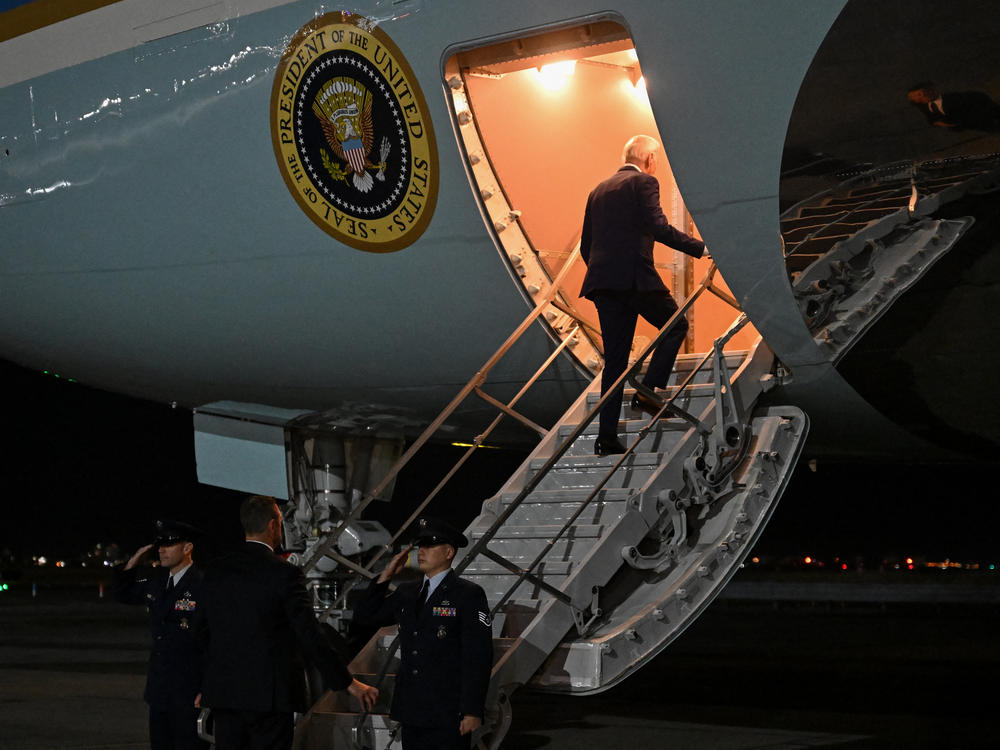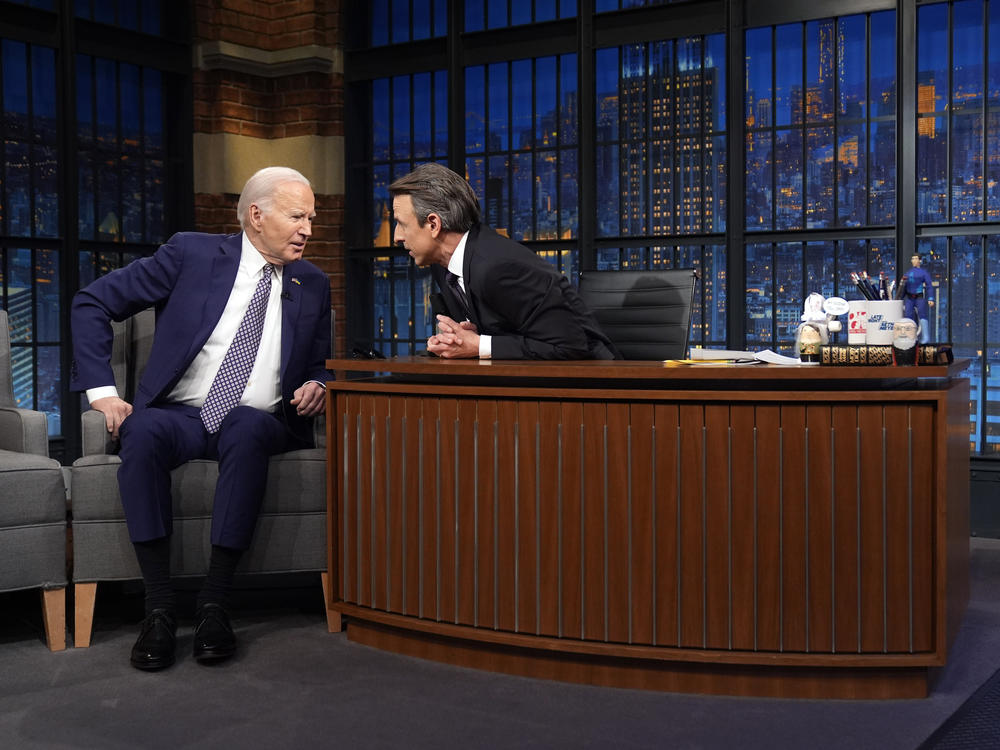Section Branding
Header Content
Biden says there could be a cease-fire in Gaza by Monday. Talks are still ongoing
Primary Content
President Biden on Monday told reporters that he is optimistic that talks on a potential cease-fire in the Gaza Strip were close to reaching a deal that he hoped could be announced by next Monday.
"My national security adviser tells me that we're close," Biden told reporters who asked him when he expected a cease-fire would begin.
"We're not done yet. And my hope is by next Monday, we'll have a cease-fire," he said.
Biden's national security adviser Jake Sullivan said on Sunday that negotiators from the United States, Israel, Egypt and Qatar had reached an understanding on the outlines of a temporary cease-fire in Gaza in order to free Israeli hostages held by Hamas and allow more aid to enter Gaza.
According to Gaza health officials, close to 30,000 people have been killed there since Israel began its assault in response to Hamas' terror attacks in October.
Biden made the comments while getting ice cream in New York City, where he attended a campaign meeting and taped an interview with NBC's Late Night with Seth Meyers.
Biden says cease-fire could last through Ramadan
During his interview with Meyers, Biden said the path forward on the temporary cease-fire was difficult, but could last into April.
"Ramadan's coming up and there's been an agreement by the Israelis that they would not engage in activities during Ramadan as well, in order to give us time to get all the hostages out," Biden told Meyers.
That would also give some time to advance efforts to normalize relations between Israel and Saudi Arabia, Biden said. But that push is contingent on movement toward a state for Palestinians, something that Israeli Prime Minister Benjamin Netanyahu has been adamantly opposed to.
"I think that if we get that temporary cease-fire, we're going to be able to move in a direction where we can change the dynamic," Biden said, noting Israel's "incredibly conservative government" risked losing support from global allies.


